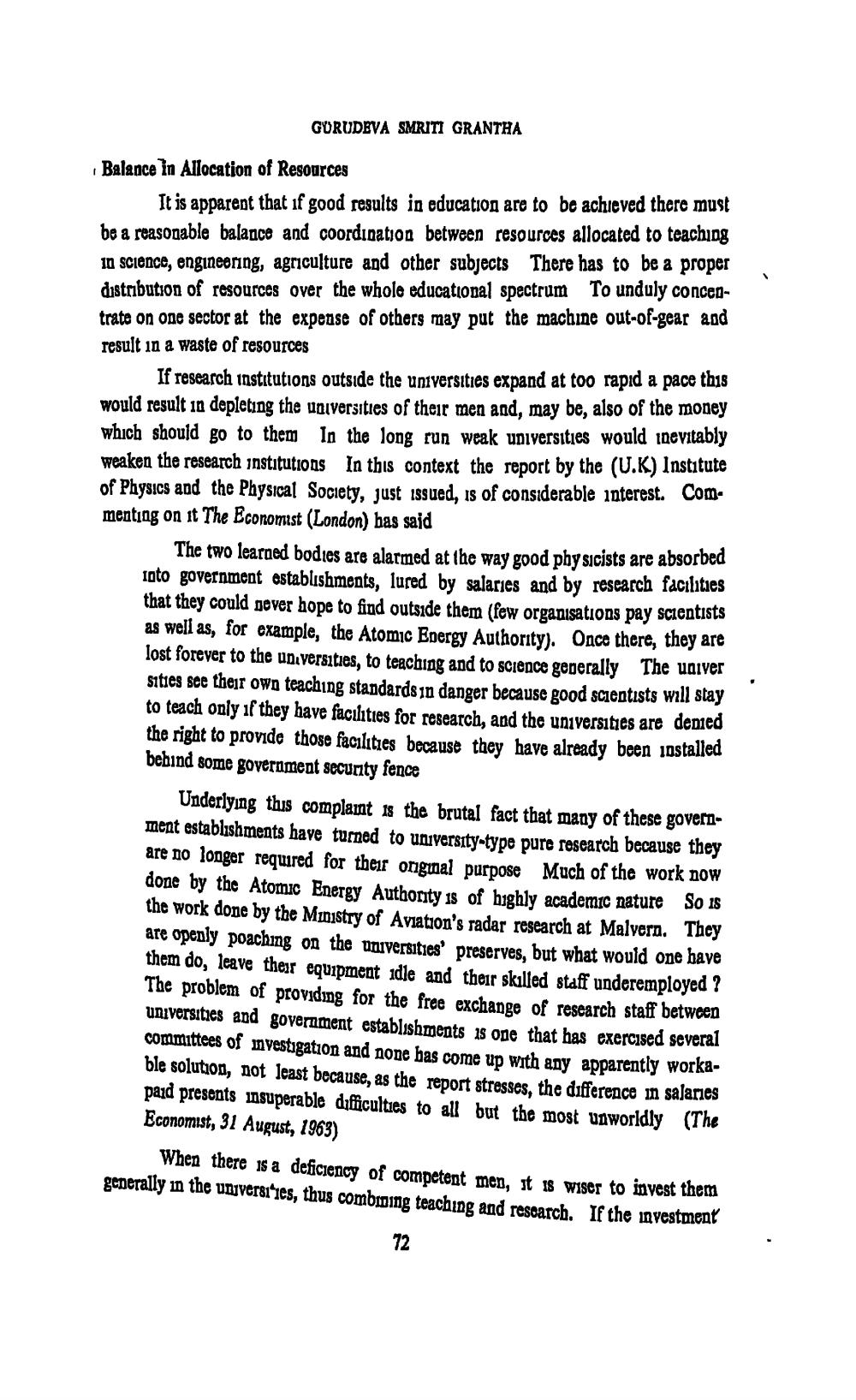________________
GURUDEVA SMRITI GRANTHA
Balance in Allocation of Resources
It is apparent that if good results in education are to be achieved there must be a reasonable balance and coordination between resources allocated to teaching in science, engineering, agriculture and other subjects There has to be a proper distribution of resources over the whole educational spectrum To unduly concentrate on one sector at the expense of others may put the machine out-of-gear and result in a waste of resources
If research institutions outside the universities expand at too rapid a pace this would result in depleting the universities of their men and, may be, also of the money which should go to them in the long run weak universities would inevitably weaken the research institutions In this context the report by the (U.K) Institute of Physics and the Physical Society, just issued, is of considerable interest. Commenting on it The Economist (London) has said
The two learned bodies are alarmed at the way good physicists are absorbed joto government establishments, lured by salaries and by research facilities that they could never hope to find outside them (few organisations pay scientists as well as, for example, the Atomic Energy Authority). Once there, they are lost forever to the universities, to teaching and to science generally The univer sities see their own teaching standards in danger because good scientists will stay to teach only if they have facilities for research, and the universities are denied the right to provide those facilities because they have already been installed bebind some government secunty fence
Underlying this complaint is the brutal fact that many of these government establishments have turned to university-type pure research because they are no longer required for their origual purpose Much of the work now done by the Atomic Energy Authority is of highly academic nature So 18 the work done by the Ministry of Aviation's radar research at Malvern. They are openly poaching on the universities preserves, but what would one have them do, leave their equipment idle and their skilled staff underemployed The problem of providing for the free exchange of research staff between Universities and government establishments is one that has exercised several committees of investigation and none has come up with any apparently workable solution, not least because, as the report stresses, the difference in salaries pard presents insuperable difficulties to all but the most unworldly (The Economist, 31 August, 1963)
When there is a deficiency of competent men, ut 18 wiser to invest them generally in the universi“les, thus combining teaching and resoarch. If the investment




